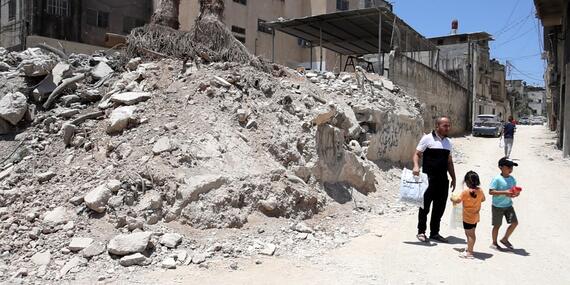Today's top news: Global humanitarian funding update, Sudan, Occupied Palestinian Territory

Global humanitarian funding update
Halfway into 2024, just 18 per cent – or US$8.8 billion – of the $48.7 billion needed to help people in need around the world this year has been received. This is less than the amount we’d received at the same time last year.
These funding gaps have real consequences for the lives of millions of people, and we encourage donors to continue to contribute generously to humanitarian response plans.
OCHA warns that the consequences of this underfunding have been particularly acute in the nine most underfunded crises: Burkina Faso, Cameroon, Chad, the Democratic Republic of the Congo, Haiti, Honduras, Mali, Myanmar and Sudan.
During the ongoing Economic and Social Council’s Humanitarian Affairs Segment in New York, a side event is highlighting the critical issue of underfunding. Titled “Underfunding and the Cost of Inaction: How to Address One of the Main Challenges to Humanitarian Response,” the event aims to help participants understand the severe impact of underfunding and the high cost of inaction.
You can follow the event live on UN Webtv.
Sudan
In Sudan, the UN and partners are working to scale up response efforts to address the deepening humanitarian crisis in Darfur, Khartoum, and other hotspots.
The situation in and around North Darfur's capital Al Fasher continues to be particularly worrying, with UNICEF reporting that more than 400 children have reportedly been killed and maimed during the recent escalation in the fighting in and around the city. The continued use of explosive weapons in populated areas is posing further risks to civilians and aid workers alike.
Meanwhile, colleagues at the World Food Programme (WFP) report that the agency has distributed critical emergency food and nutrition supplies for more than 135,000 people in Aj Jazirah State. This is the first time WFP supplies have gotten into Sudan’s breadbasket since conflict spilled over to the state capital Wad Madani in December of last year, forcing WFP to temporarily relocate staff and operations.
Elsewhere, a WFP convoy carrying more than 2,300 metric tons of food assistance for some 164,000 people affected by conflict is crossing the border from Chad into Darfur and on the road to North and Central Darfur.
Meanwhile, UNICEF's Executive Director Catherine Russel has wrapped up a visit to Port Sudan. She warned that children across the country continue to pay a devastating price for the conflict. More than half of the country’s 24 million children – some 14 million – are in urgent need of humanitarian assistance, and almost all of Sudan’s children are not in school. Reports of serious rights violations against children continue at an alarming rate.
According to the International Organization for Migration, the number of displaced people has increased by 440,000 people in the last two weeks alone.
Occupied Palestinian Territory
The Humanitarian Coordinator for the Occupied Palestinian Territory, Muhannad Hadi, led a field visit to witness how settlement expansion and restrictions on access and movement are fueling humanitarian needs, in the occupied West Bank.
The mission, which was organized by OCHA and the UN Relief and Works Agency for Palestine Refugees in the Near East, included a visit to Tulkarm city and its two adjacent camps – Tulkarm and Nur Shams. Hadi met with communities there, who spoke of the impact of recurrent operations by Israeli forces in the camps.
Across the West Bank, including East Jerusalem, OCHA says that as of Monday, 536 Palestinians – nearly a quarter of them children – have been killed since 7 October. The vast majority were killed by Israeli forces, and at least 10 by settlers. Nearly 5,400 Palestinians were injured in these incidents.
In the week between 18 and 24 June, OCHA also documented 18 attacks by Israeli settlers across the West Bank, resulting in injuries and damage to Palestinian-owned property and trees.
In Gaza, OCHA tells us that insecurity and active hostilities in the south are still a major impediment to humanitarian operations.
In the past week, a number of attacks have hit the periphery of Al Mawasi, where many displaced people have sought shelter.
One of the major and ongoing constraints is picking up supplies from the Kerem Shalom crossing. To do that, humanitarian organizations are exposed to criminal activity along the single road they have been forced to use, amid Israeli military operations nearby. The Israeli authorities continue to restrict the use of alternative roads.
Meanwhile, partners working to support health care in Gaza warn that power blackouts due to fuel shortages continue to put the lives of critically ill patients at risk. This includes newborns, patients receiving dialysis and those in intensive care units.
The lack of fuel is also hampering efforts to respond to the water, sanitation and hygiene crisis across Gaza. Partners working on the response say water production from groundwater wells – which is the main source of Gaza’s water supply – has shrunk by more than 50 per cent – from 35,000 cubic metres per day to just 15,000.
